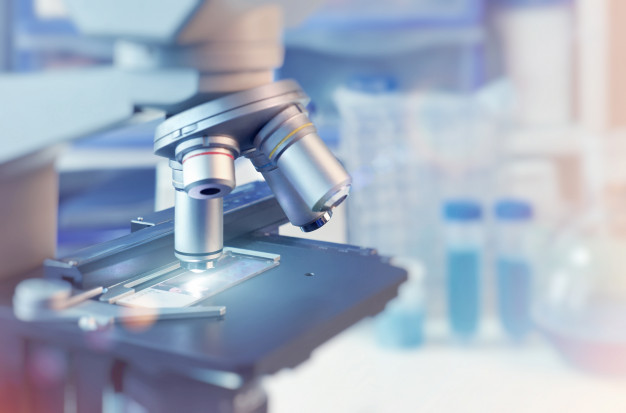Enhancement of Intestinal Immune Function in Mice by b-D-Glucan from Aureobasidium Pullulans ADK-34 A.
Tanioka*, K. Tanabe†, A. Hosono‡, H. Kawakami§, S. Kaminogawa‡, K. Tsubaki* & S. Hachimura†¶
*Life Science Materials Laboratory, R&D Division, ADEKA Corporation, Arakawa-ku, Tokyo, Japan; †Department of Applied Biological Chemistry, Graduate School of Agricultural and Life Sciences, The University of Tokyo, Bunkyo-ku, Tokyo, Japan; ‡Department of Food Bioscience and Biotechnology, College of Bioresource Sciences, Nihon University, Kanagawa, Japan; §Department of Food Science and Nutrition, Kyoritsu Women’s University, Chiyoda-ku, Tokyo, Japan; and ¶Research Center for Food Safety, Graduate School of Agricultural and Life Sciences, The University of Tokyo, Bunkyo-ku, Tokyo, Japan
Received 19 September 2012; Accepted in revised form 22 April 2013
Correspondence to: A. Tanioka, Life Science Materials Laboratory, R&D Division, ADEKA Corporation, 7-2-34, Higashiogu, Arakawa-ku, Tokyo 116-8553, Japan. E-mail: a.tanioka@ adeka.co.jp
Abstract
b-Glucans, glucose polymers that are the main constituents of the outer cell walls of micro-organisms such as fungi and yeast, are known to play an immunostimulatory role. We prepared b-glucan (b-(1-3),(1-6)-D-glucan) from an edible cultured fungus through fermentation techniques using a strain of Aureobasidium pullulans ADK-34. The purity of this b-glucan preparation (AP-FBG) was demonstrated to be high through various instrumental analyses. We then examined the effects of AP-FBG on intestinal immune systems. We prepared Peyer’s patch (PP) cells and measured interleukin (IL)-5, IL-6, and IgA production in culture media with APFBG. We found that both cytokines and IgA increased; furthermore, IL-6 secreted by PP dendritic cells (PPDCs) cultured in the presence of AP-FBG significantly increased. We tested IgA production after oral administration of AP-FBG for 2 weeks and found that AP-FBG tended to promote the production of IgA in the small intestine. Interestingly, we observed a significant increase in IgA production in the small intestines of mice treated with cyclophosphamide (CY; an immunosuppressant) after oral administration of AP-FBG diet compared with CY-treated and control diet mice. Production of IL-6 and IgA by PP cells and IL-6 production by PPDCs in AP-FBG-fed and CY-treated mice also increased. These results demonstrate that AP-FBG has the ability to activate PPDC and induce IL-6 production and IgA secretion in PP cells. These abilities were more clearly expressed when AP-FBG was orally administered in a CY-induced immunosuppressed condition. Therefore, AP-FBG may be a useful ingredient for preparing functional foods with immunomodulatory activities. Introduction b-Glucans are glucose polymers that are primarily used to construct the outer cell walls of plants and micro-organisms, such as fungi, mushrooms and yeast. Recent reports have also shown that various b-glucans from food sources, including mushrooms, yeast and cereals, play a significant role in enhancing immunological response, possess antitumour and immunomodulating properties, reduce allergic reactions and prevent infectious diseases [1, 2]. Certain strains of Aureobasidium pullulans, a black yeastlike fungus, produce various polysaccharides, including b-glucan, pullulan and a glucan having an acid residue [3–5]. This b-glucan (b-(1,3), (1,6)-D-glucan) consists of a b-(1?3)-linked backbone with b-(1?6)-linked side chains of varying lengths and distributions; it has a similar structure to b-glucans obtained from mushroom fruiting bodies. These b-glucans are also well known to have several health benefits [6]. There have been several studies on the efficacy of b-glucan from A. pullulans demonstrating, for example antitumour effects [7], promotion of DNA synthesis by human peripheral blood mononuclear cells (PBMCs) [8], prevention of food allergies [9] and activation of antibody-dependent cell-mediated cytotoxicity (ADCC) mediated by natural killer (NK) cells, monocytes and neutrophils [10]. Lately, some new benefits have been reported, for example reduction in restraint stress [11], anti-osteoporotic effects [12], and reduction in acute xylene-induced inflammation [13]. We have succeeded in isolating a strain, ADK-34 (FERM BP-8391), that produces considerable quantities of b-(1,3), (1,6)-D-glucan with high solubility compared with previously reported b-glucans, and is being industrially manufactured at present [14]. We have termed this b-glucan AP-FBG in this study. We previously reported that AP-FBG is a biological response modifier (BRM); for example, when injected i.p., AP-FBG was able to accumulate leucocytes and neutrophils and promote production of the Th1-type cytokines TNF-a, IL-12 and IFNc from peritoneal exudate cells (PEC) [14, 15].
EXPERIMENTAL IMMUNOLOGY
Received 19 September 2012; Accepted in
revised form 22 April 2013
ข้อมูลเพิ่มเติม : https://onlinelibrary.wiley.com/doi/pdf/10.1111/sji.12067

